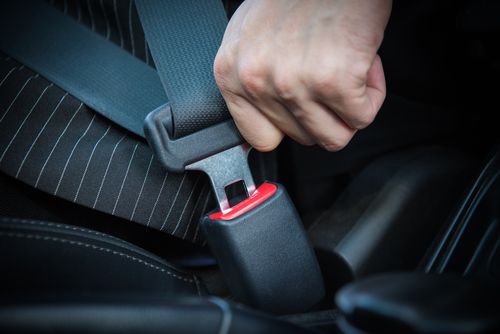
Knowing what to expect after a car accident ensures you know how to navigate the claims process, get the care you need for your injuries, and recover fair compensation. Your post-collision steps involve getting appropriate care, protecting your rights, dealing with insurance companies, and talking to an attorney about your case. Discussing your case with a lawyer can offer clarity about your legal options.
Most personal injury firms offer free consultations for crash victims. These conversations involve discussing the case, your legal options, and the firm’s services with an experienced car accident lawyer. You could manage the claims process without legal aid, but doing so could yield less compensation than you need.
Expect to Take Action (if Possible) at the Collision Scene
You might not think straight in the initial minutes and hours after a crash. A head-on collision can make it difficult to think clearly, even if your injuries are not serious. It is best to focus on your own well-being and the safety of any family members with injuries. If possible after the crash, call 911 or ask someone else to do so.
You can take pictures of the vehicles and the scene—close-up and landscape images—if it is safe and you do not have any injuries that prevent it. Gather the names of eyewitnesses and the insurance information of those involved. If you have injuries, wait for first responders; do not try to tough it out and leave the scene.
When paramedics arrive, let them assess you. Just because you feel OK does not mean you are. They could spot signs of significant injury that might not be obvious to you. They will likely recommend taking you to an emergency treatment center, so a doctor can evaluate your condition.
Realize Your Injury-Related Losses
After your collision, you can expect to evaluate your injury-related losses. Doing so helps you understand what constitutes a fair settlement. It also helps you come to terms with your financial situation. Your accident-related losses could comprise medical bills, lost income, pain and suffering, and other damages.
You May Undergo Extensive Treatment for Your Condition
After a serious car accident, you could have a lengthy recovery period ahead. This may involve attending physical therapy, taking certain medications, and undergoing surgery. It’s vital that you follow your doctor’s treatment plan following your collision.
Doing so:
- Helps you reach maximum medical improvement. You may never fully recover from your condition. Still, you want your body to heal to the best of its ability.
- Connects your injury to the collision. Seeking medical care shows the insurance company that you suffered harm in a collision and intend to seek compensation.
- Generates evidence to support your case. A lawyer can use your imaging scans, lab test results, and other information to support your claim or lawsuit. The more information to support your case, the more willing the insurer could be to settle.
Expect to Deal With the Laws as They Apply to Your Case
After filing your car accident claim, you will face various laws as they apply to your situation. One of those laws is the statute of limitations. Each state has one, and these deadlines limit how long you have to file a civil lawsuit. Some states allow just one year to file, while others allow up to four.
You don’t have to graduate from law school to understand personal injury law. Instead, you can entrust your case to a car accident lawyer who can handle everything.
Dealing With Insurance Companies After a Car Accident
Sometimes, crash victims hear from the at-fault driver’s insurance company quickly after a crash. It either wants a recorded statement, or it makes a fast settlement offer. In either event, beware. The insurance adjuster is not on your side. They want to pay as little as possible in your case, saving their employer’s profit margins. They want a recorded statement to try to downplay your injuries or undervalue your treatment.
Accepting an early offer is also a bad idea. When you are still undergoing treatment, there is no way to know your prognosis, the cost of treatment, how much work you will miss, or many other factors that could affect your case’s value.
You should not accept any offer until you know:
- The cost of your treatment to date
- Your future care needs and care expenses
- If you can return to your job
- How your injuries will affect your life in the future
- The overall value of your financial losses
When you are still undergoing treatment, there is no reason why you need to deal with the other driver’s insurer or file a claim this early. In most cases, it is fine to notify your insurer you were in a collision and not worry about it until your injuries are stable. You shouldn’t have to negotiate with a claims adjuster while on a gurney.
When injuries are more serious or catastrophic, immediate family members should consider enlisting the help of a car crash attorney. Some evidence needs preservation in the first week or two after a crash. A lawyer can handle this while the victim is in the hospital and recovers.
The Insurance Company May Contest Certain Aspects of Your Case
Not all insurance companies willingly settle in good faith. Some blame car crash claimants for their injuries. Others throw up similar roadblocks, hoping to discourage claimants from seeking compensation.
The liable insurance company may even deny your claim altogether, alleging:
- There isn’t sufficient evidence to support your case.
- You caused the collision.
- Your injuries did not stem from the collision.
- Your injuries aren’t serious enough to warrant compensation.
- You missed your claim’s filing deadline.
While many collision claims settle through negotiations, this process isn’t easy. This is yet another reason why injured claimants partner with attorneys.
The Insurance Company May Want to Negotiate
Even after offering a lowball settlement, the insurance adjuster may be open to negotiations. Here, you can present additional evidence to support the compensation you’re requesting. Negotiations involve understanding your damages’ cost, the liable policy, and the cause of your collision.
Many people hire personal injury lawyers to manage negotiations for them. These professionals know how to advocate for their clients and seek the best possible outcomes.
Sorting out Your Options for Seeking Compensation
You should consider taking legal action at your earliest convenience. There are several ways to recover compensation in a car accident case.
Your options will depend on:
- State law
- The circumstances of the crash
- The severity of your injuries and related expenses
- How the insurance company chooses to approach the case
- Recommendations from your attorney
In general, the options that could be available to you include:
A No-Fault Insurance Claim
Most states allow crash victims to build a case against the at-fault driver’s insurance provider. However, some states require no-fault insurance coverage and ask all drivers to first turn to their no-fault coverage to cover their expenses.
For example, under New York law, drivers have a no-fault policy for their basic expenses following an accident. This policy pays for medical care, a portion of the policyholder’s lost income, and a daily payout for related expenses. Only those with serious injuries or who meet other requirements can pursue additional damages through a fault-based claim.
Other states that require a no-fault policy allow victims to pursue fault-based cases when their injuries meet a certain level of severity or their expenses cost more than their no-fault insurance provides.
A Fault-Based Insurance Settlement
One of the most common ways crash victims recover compensation is by negotiating a car accident settlement with the at-fault driver’s insurance company. This requires understanding the cost of their damages, the cause of the crash, and who is responsible.
Insurance companies do not want to pay out to cover victims’ range of expenses and losses. Instead, they work to reduce the money paid, so they can make profits. This often makes it difficult for some injured people to get compensation. That’s why many choose to partner with injury lawyers in their state.
A Civil Lawsuit Against the At-Fault Driver
Sometimes, you have to sue the driver who caused your injuries.
Your lawyer may advise filing a lawsuit if:
- The liable insurance company doesn’t offer full compensation.
- The at-fault driver doesn’t have insurance —or doesn’t have adequate insurance.
- The statute of limitations’ deadline draws near.
- Insurance negotiations have come to a standstill.
An attorney can manage the many obligations that come with filing a civil lawsuit. This process involves taking depositions, communicating with the defendant’s legal team, and arguing for fair compensation. Your lawyer may even file a lawsuit, only to have the insurance company offer a fair settlement shortly afterward.
Building a Case With Help From a Car Accident Attorney
Working with a lawyer is a good way to protect your legal rights throughout the claims process. A lawyer knows how to navigate the claims process and take legal action against the driver who caused your crash. They can also ensure you understand your legal options, including whether filing a fault-based claim could benefit you.
An Attorney Gathers the Evidence Needed to Support Your Claim
You must prove negligence and liability to hold the other party accountable for your losses.
Yet, to accomplish this, your lawyer needs:
- The crash report filed by law enforcement officers
- The crash scene survey
- Eyewitness statements
- Accident reconstruction data
- Video, when available
- Expert testimony
- Information from medical care providers about your prognosis and care needs
- Medical bills and other documents showing expenses and losses
A Lawyer Uses Evidence to Demonstrate the Other Party’s Negligence
The evidence above shows what happened and how the other driver’s behavior led to the crash.
Using this information, your lawyer must assert:
- The driver had a duty of care.
- They breached that duty.
- This caused the crash.
- You suffered harm and have damages.
Imagine this scenario to understand the four elements of negligence. You were in the left lane on a highway. Then, a speeding motorist rear-ended you. That motorist had a duty of care to operate their vehicle safely. They breached that duty of care by speeding. Now, because they caused the collision, they should pay for your damages.
A Legal Representative Can Evaluate Your Damages’ Cost
After a car accident, you may have a rough understanding of your damages’ cost. However, you may not know how much you can seek for non-economic damages, such as pain and suffering. A lawyer can evaluate your situation and explain what constitutes a fair settlement offer.
A lawyer can estimate your losses’ value by:
- Consulting with field experts
- Calculating your medical bills and receipts
- Projecting your future losses
- Evaluating the liable policy
- Accounting for your life’s new challenges
There is no average settlement value for car crash claims. Each person’s case is different.
Avoid Certain Things After a Collision
After a collision, you can expect to file a claim, negotiate with the insurer, and consider your legal options. Still, there are some things you should avoid, as they could hurt your case’s outcome.
A trained professional may suggest that you refrain from:
- Using social media during your case’s progression
- Accepting an early settlement offer
- Giving the insurer a recorded statement
- Messaging the at-fault party
- Assuming anything about your case’s outcome
- Managing a case on your own
By doing any of these things after a car accident, you risk a poor outcome to your legal case.
You Can Discuss Your Crash With a Personal Injury Law Firm Today
If you suffered injuries in a crash, you can contact a personal injury law firm that could handle your legal case. This allows you to focus on healing and getting your life back to normal. You do not have to manage this process alone.
Injury lawyers take care of these claims daily. They know how to deal with insurance companies and navigate the legal process. Most represent clients with no upfront fees and no attorney’s fees at all unless you win your case. Time is of the essence in personal injury claims, so you should consider your options today.








